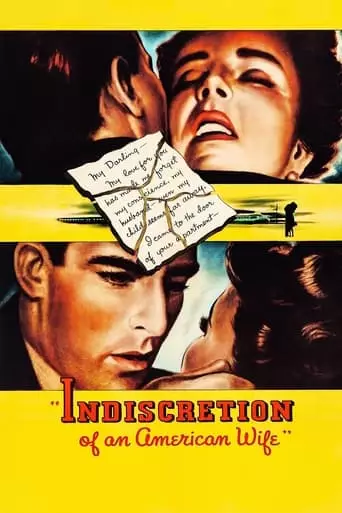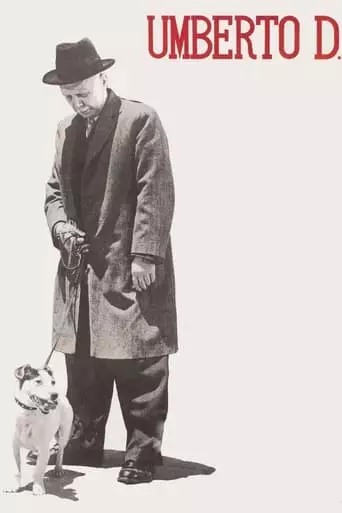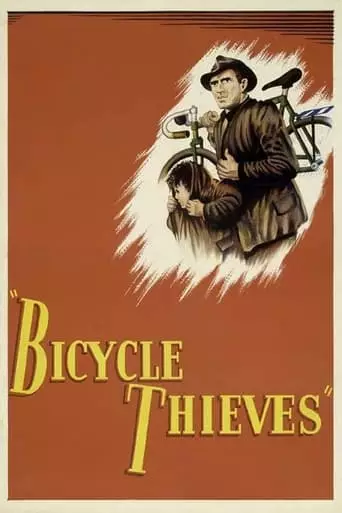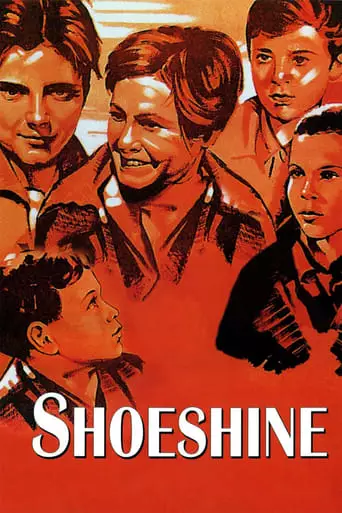While on vacation in Rome, married American Mary Forbes becomes entangled in an affair with an Italian man, Giovanni Doria. As she prepares to leave Italy, Giovanni confesses his love […]

While on vacation in Rome, married American Mary Forbes becomes entangled in an affair with an Italian man, Giovanni Doria. As she prepares to leave Italy, Giovanni confesses his love […]

Widowed shopkeeper Cesira and her 13-year-old daughter Rosetta flee from the allied bombs in Rome during the second World War; they travel to the remote village where Cesira was born. […]

When elderly pensioner Umberto Domenico Ferrari returns to his boarding house from a protest calling for a hike in old-age pensions, his landlady demands her 15, 000-lire rent by the […]

Unemployed Antonio is elated when he finally finds work hanging posters around war-torn Rome. However on his first day, his bicycle—essential to his work—gets stolen. His job is doomed unless […]

At a track near Rome, shoeshine boys are watching horses run. Two of the boys Pasquale, an orphan, and Giuseppe, his younger friend are riding. The pair have been saving […]
Vittorio De Sica: The Maestro of Italian Neorealism
Vittorio De Sica (1901–1974) was a legendary Italian filmmaker, actor, and pioneer of the Italian Neorealist movement. Known for his deeply humanistic storytelling and unflinching portrayal of ordinary people, De Sica directed some of cinema’s most enduring masterpieces, including Bicycle Thieves (1948), Umberto D. (1952), and Shoeshine (1946). His films combined social commentary with profound emotional depth, leaving an indelible mark on global cinema.
Early Life and Career Beginnings
Vittorio De Sica was born on July 7, 1901, in Sora, Italy, and grew up in a middle-class family. His early years were shaped by a love of performance, and he began his career as an actor in the 1920s. By the 1930s, De Sica had become a popular leading man in Italian cinema, appearing in light comedies and romantic dramas.
While his acting career flourished, De Sica developed an interest in directing. He made his directorial debut with Rose scarlatte (1940), a light romantic comedy. However, it was during the post-war period that De Sica truly found his voice as a filmmaker, embracing the Neorealist style that would define his legacy.
The Birth of Neorealism: Shoeshine (1946)
In the aftermath of World War II, De Sica turned his attention to the struggles of ordinary Italians, creating films that captured the harsh realities of life with authenticity and compassion. His first major Neorealist work, Shoeshine (Sciuscià), tells the story of two young boys in post-war Rome whose friendship is tested by poverty and injustice.
Shoeshine was groundbreaking in its use of non-professional actors and its focus on the plight of marginalized individuals. The film received an honorary Academy Award in 1948, recognizing its profound impact on world cinema.
Bicycle Thieves (1948): A Masterpiece of Humanist Cinema
De Sica’s most celebrated film, Bicycle Thieves (Ladri di biciclette), is widely regarded as one of the greatest films ever made. The story follows Antonio, an unemployed man in Rome, and his young son Bruno as they search for a stolen bicycle essential to Antonio’s job.
Shot on location with non-professional actors, Bicycle Thieves captures the desperation and dignity of its characters with heartbreaking realism. The film’s exploration of poverty, family, and moral dilemmas resonated deeply with audiences and critics alike. It won numerous awards, including an honorary Academy Award, and remains a cornerstone of Neorealist cinema.
Umberto D. (1952): A Portrait of Loneliness
In Umberto D., De Sica delivered another poignant portrayal of human struggle. The film follows an elderly pensioner, Umberto Domenico Ferrari, as he faces eviction and loneliness in post-war Italy. With its unflinching depiction of poverty and isolation, Umberto D. is often considered one of De Sica’s most personal and moving works.
Despite its critical acclaim, the film was not a commercial success, reflecting the waning popularity of Neorealism in the 1950s. However, it has since been recognized as a masterpiece and a profound exploration of human resilience.
Later Career: From Neorealism to Mainstream Success
As the Neorealist movement declined, De Sica adapted his style to embrace more commercial and international projects. He directed a series of films that balanced artistic ambition with broader appeal, including:
Gold of Naples (1954): A collection of vignettes celebrating life in Naples, showcasing De Sica’s versatility and humor.
Two Women (1960): Starring Sophia Loren, this harrowing drama about a mother and daughter during World War II earned Loren an Academy Award for Best Actress, the first-ever Oscar for a performance in a foreign-language film.
Yesterday, Today and Tomorrow (1963): A comedic anthology film starring Loren and Marcello Mastroianni, which won the Academy Award for Best Foreign Language Film.
The Garden of the Finzi-Continis (1970): A haunting drama about a wealthy Jewish family in fascist Italy, which won the Academy Award for Best Foreign Language Film.
Directorial Style and Themes
Vittorio De Sica’s films are defined by their deep empathy for humanity and their commitment to social realism. Key elements of his style include:
Non-Professional Actors: De Sica often cast ordinary people in his films, lending authenticity and raw emotion to his characters.
Location Shooting: By filming on real streets and in actual neighborhoods, De Sica created a vivid sense of place and atmosphere.
Humanistic Themes: His work frequently explored issues of poverty, injustice, and resilience, focusing on the dignity and struggles of everyday people.
Emotional Depth: De Sica’s films are renowned for their ability to evoke profound emotions, from heartbreak to hope.
Legacy and Influence
Vittorio De Sica’s contributions to cinema have had a lasting impact on filmmakers and audiences worldwide. His Neorealist masterpieces, particularly Bicycle Thieves and Umberto D., influenced directors such as Martin Scorsese, Satyajit Ray, and François Truffaut. His ability to blend social commentary with universal human stories has ensured that his films remain timeless.
De Sica’s work also paved the way for a new wave of Italian cinema, inspiring future generations to embrace realism and explore the lives of ordinary people. His films continue to be studied and celebrated for their artistry, compassion, and insight into the human condition.
Conclusion
Vittorio De Sica was more than a filmmaker; he was a chronicler of the human spirit, capturing the struggles and triumphs of ordinary people with unparalleled sensitivity and artistry. From the streets of post-war Rome to the intimate lives of his characters, De Sica’s films resonate with timeless truths about humanity. His legacy as a pioneer of Italian Neorealism and a master storyteller remains firmly etched in the annals of cinematic history.